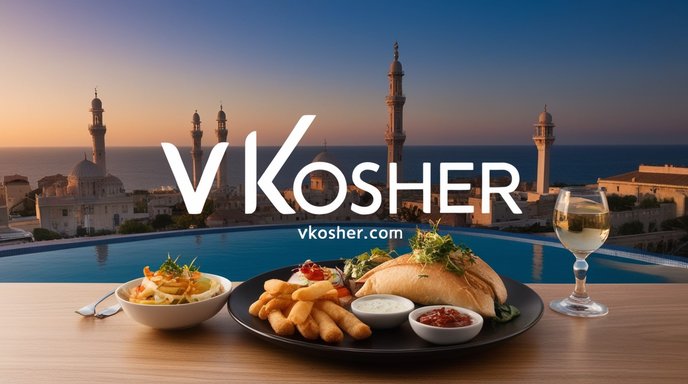Understanding Kosher Events: A Guide to Celebrating with Tradition
Kosher events are more than just gatherings; they are a celebration of tradition, culture, and religious observance. Whether it's a wedding, a Bar or Bat Mitzvah, or a corporate event, ensuring that the event adheres to kosher dietary laws and customs is essential for many within the Jewish community. This guide delves into what makes an event kosher, the importance of kosher certification, and how to plan a kosher event that is both meaningful and memorable.
What Defines a Kosher Event?
A kosher event is one that adheres strictly to Jewish dietary laws, known as kashrut. These laws govern not only the types of food that can be consumed but also how they are prepared and served. The fundamental principle of kashrut is the separation of meat and dairy products, ensuring that they are not mixed during preparation, serving, or consumption.
In addition to food, a kosher event also considers other aspects of Jewish law, such as the use of kosher wines and beverages, the observance of Shabbat (the Jewish Sabbath), and the incorporation of Jewish rituals and traditions into the event itself. The goal is to create an environment where participants can celebrate in a manner that is consistent with their religious beliefs.
The Role of Kosher Certification
Kosher certification is a crucial element in planning any kosher event. This certification is provided by rabbinic authorities or kosher certification agencies that inspect and approve the food and beverages being used. The certification ensures that the products have been prepared in accordance with Jewish dietary laws and are free from any non-kosher ingredients or processes.
When organizing a kosher event, it is essential to work with caterers, venues, and suppliers who are familiar with kosher requirements and can provide certified kosher products. This not only ensures the authenticity of the event but also gives guests peace of mind that their dietary needs and religious practices are being respected.
Types of Kosher Events
Kosher events can vary widely in scope and purpose, but they all share a common commitment to adhering to kashrut. Some of the most common types of kosher events include:
- Weddings: A kosher wedding is a celebration that aligns with Jewish marriage traditions. The menu is carefully curated to avoid any mixing of meat and dairy, and often features traditional Jewish dishes. The ceremony itself may also include specific rituals, such as the breaking of the glass or the signing of the ketubah (marriage contract).
- Bar and Bat Mitzvahs: Celebrating a child's coming of age in the Jewish faith is a significant milestone. A kosher Bar or Bat Mitzvah ensures that the event honors this important rite of passage while adhering to dietary laws. The event typically includes a kosher meal, and the synagogue may play a central role in the day's activities.
- Corporate Events: For businesses that wish to accommodate their Jewish employees or clients, hosting a kosher corporate event can be a thoughtful gesture. This might include a kosher business luncheon, a holiday party, or a conference where kosher food options are provided. Ensuring that the event is kosher can enhance inclusivity and demonstrate respect for religious diversity.
- Holidays and Festivals: Jewish holidays such as Passover, Hanukkah, and Rosh Hashanah are often celebrated with large gatherings that include kosher meals. These events are not only about the food but also about observing the religious customs and traditions associated with each holiday. For example, during Passover, the food must be kosher for Passover, meaning it is free from chametz (leavened products).
Planning a Kosher Event
Organizing a kosher event requires careful planning and attention to detail. From selecting the right venue to working with knowledgeable vendors, each aspect of the event must align with kosher principles.
Choosing the Right Venue
The venue plays a significant role in the success of a kosher event. Many event spaces are familiar with kosher requirements and have experience hosting kosher events. However, it's important to confirm that the venue can accommodate the specific needs of your event. This may include having separate kitchens for meat and dairy, ensuring that all utensils and equipment are kosher, and providing a space that is suitable for religious observance.
In some cases, you may need to bring in a kosher caterer or a mashgiach (a kosher supervisor) to oversee the food preparation and ensure that everything adheres to kosher standards. The venue should also be able to support any religious rituals or customs that are part of the event, such as a chuppah for a wedding or a Torah reading for a Bar Mitzvah.
Selecting a Kosher Caterer
The caterer is perhaps the most critical component of a kosher event. A kosher caterer is not only familiar with the dietary laws but also has the necessary certifications and expertise to prepare and serve food that meets these standards. When selecting a caterer, it's important to ask about their kosher certification, their experience with similar events, and their ability to customize a menu that fits your needs.
The menu should reflect the occasion and can include a mix of traditional Jewish dishes and contemporary cuisine. Popular options might include gefilte fish, brisket, kugel, and challah for a more traditional event, or gourmet kosher sushi and modern appetizers for a contemporary twist. The key is to ensure that all ingredients are kosher and that meat and dairy are kept separate.
Incorporating Jewish Traditions
A kosher event often goes beyond food to include various Jewish traditions and customs. Depending on the type of event, this might involve specific rituals or symbolic elements that add meaning to the celebration. For example, a wedding might include the recitation of the seven blessings under the chuppah, while a Bar Mitzvah might feature a Torah reading and a d’var Torah (a speech or lesson based on the Torah).
Incorporating these traditions can make the event more meaningful for the participants and help them connect with their heritage. It's also an opportunity to educate non-Jewish guests about the significance of these customs, creating a more inclusive and enriching experience for everyone involved.
Navigating Common Challenges
While planning a kosher event can be incredibly rewarding, it also comes with its challenges. Some of the most common obstacles include finding a suitable venue, sourcing kosher ingredients, and ensuring that all aspects of the event comply with kosher laws. However, with careful planning and the right support, these challenges can be overcome.
Working with Non-Jewish Guests
If your event includes non-Jewish guests, it's important to communicate the significance of kosher dietary laws and how they will impact the event. This might involve explaining the separation of meat and dairy, why certain foods are not served, and how the event will observe Jewish customs. Providing this information in advance can help guests feel more comfortable and ensure that everyone understands the importance of these practices.
You can also consider offering a brief explanation during the event, perhaps as part of the welcome or opening remarks. This not only educates your guests but also sets the tone for a respectful and inclusive celebration.
Ensuring Compliance with Kashrut
Ensuring that every aspect of the event complies with kashrut can be complex, especially if the event involves multiple vendors or takes place in a non-kosher venue. In such cases, it's advisable to work closely with a rabbi or a kosher supervisor who can oversee the preparations and ensure that everything adheres to the necessary standards.
This might involve on-site supervision during food preparation, checking the certification of ingredients, and ensuring that all utensils and equipment are kosher. By taking these precautions, you can have confidence that your event will be fully compliant with kosher laws.
The Growing Popularity of Kosher Events
In recent years, there has been a growing interest in kosher events beyond the Jewish community. Whether for health reasons, ethical considerations, or simply a preference for kosher cuisine, more people are choosing to host or attend kosher events. This trend has led to an increase in the availability of kosher products, the rise of kosher gourmet cuisine, and a greater understanding of kosher dietary laws.
For those planning a kosher event, this trend offers more options and greater flexibility. From upscale kosher caterers to venues that specialize in kosher events, the resources available today make it easier than ever to host a kosher celebration that is both traditional and contemporary.
Conclusion
Kosher events are a beautiful expression of faith, culture, and community. Whether you're planning a wedding, a Bar Mitzvah, or a corporate event, understanding the principles of kashrut and incorporating Jewish traditions can create a celebration that is both meaningful and memorable. By working with knowledgeable vendors, selecting the right venue, and paying attention to the details, you can ensure that your kosher event is a success, honoring both the past and the present in a way that resonates with all who attend.




